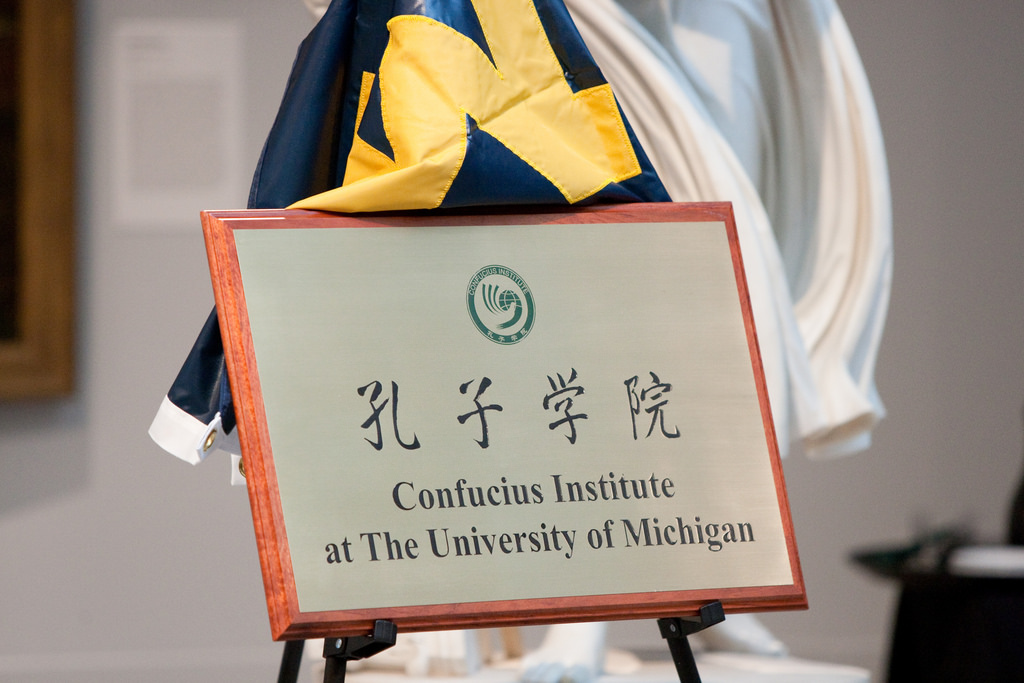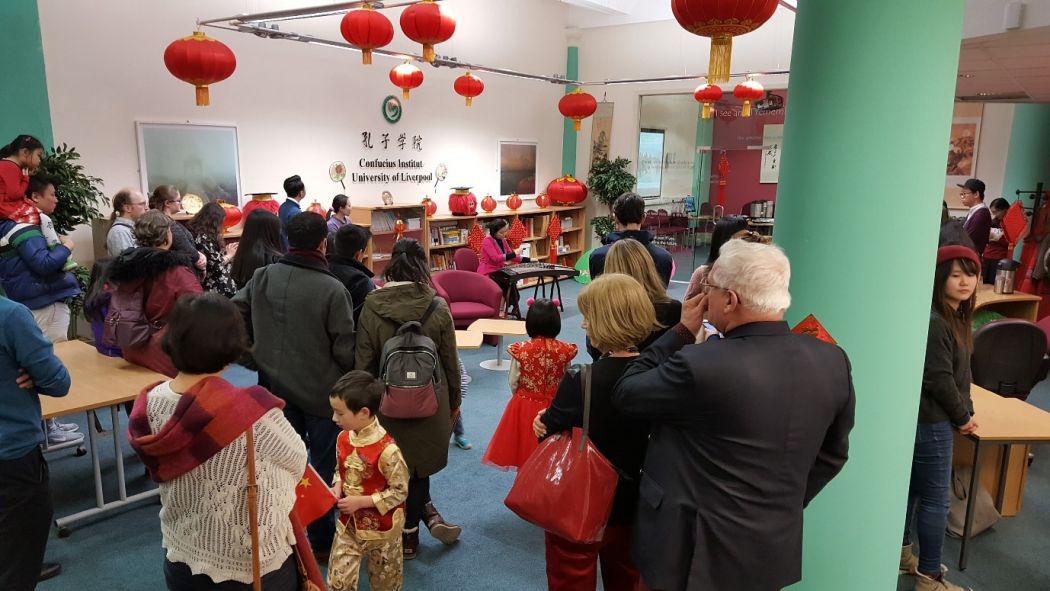British schools and universities should suspend further partnerships with China’s Confucius Institutes until a review is completed, the country’s Conservative Party Human Rights Commission has suggested.
In a new report, the commission said Confucius Institutes “threaten academic freedom and freedom of expression in universities around the world and represent an endeavour by the Chinese Communist Party to spread its propaganda and suppress its critics beyond its borders.”
The report came after at least 27 universities around the world terminated ties with Confucius Institutes, including Stockholm University, the University of Lyon, and the University of Michigan, among others. Several institutions, such as the University of British Columbia and the University of Manitoba in Canada, reversed their decision to open a Confucius Institute.

Founded in 2004, the non-profit educational bodies are affiliated with China’s education ministry and claim to promote Chinese language and culture.
Fiona Bruce MP, chair of the commission, said the evidence they received raised “very serious questions” about the influence Confucius Institutes may wield at British universities and schools.
“We welcome and encourage language teaching and cultural exchange, but we believe a review is necessary to assess whether Confucius Institutes represent a threat to academic freedom, freedom of expression, other basic rights and indeed national security,” she said.
“We also believe it is right to have an assessment to ensure that the curriculum taught in Confucius Institutes is balanced, independent, holistic and comprehensive, and measures to require transparency and accountability in any future agreements between British institutions and Confucius Institutes.”
‘Overseas propaganda’
The commission conducted an inquiry into the institutes last year, and received evidence from academics, former diplomats, human rights activists and researchers. It had also held a screening of the documentary, In the Name of Confucius, which examined Confucius Institutes in Canada.
The report cited several instances of speeches by Chinese officials on the role of the institutes.
In 2007, Li Changchun, the then head of propaganda for the Chinese Communist Party, said during a visit to the Confucius Institute headquarters that the organisation was “an important part of China’s overseas propaganda set-up.”

The report also quoted Xu Lin, the director-general of the Hanban – a unit under the Ministry of Education. Xu was cited as saying in 2010: “Confucius Institutes… are an important part of soft power. Because we want to expand our influence, we do not deny this. We agree.”
The report included cases of censorship, or suppression of discussion, at Confucius Institutes over sensitive topics – namely the 1989 Tiananmen massacre, Tibet and Taiwan.
For instance, Sydney University in 2013 called off an event with the Dalai Lama to avoid funding cuts for its Confucius Institute, according to Tibetan activists and Australian politicians.
Last year, references to Taiwan were removed from a biography of American journalist Bethany Allen-Ebrahimian, after she was invited to deliver a keynote speech and receive an award at Savannah State University in the US. The Chinese co-director of the university’s Confucius Institute demanded the references removed.

The Commission made ten recommendations, including calling for a review of all current agreements between British universities, schools and other educational institutions and Confucius Institutes. It suggested that further agreements should be suspended until the review is completed.
It urged the UK government to pass laws requiring transparency from Confucius Institutes in their dealings with universities, colleges, schools and other educational institutions in Britain.
It also urged a review of all visas for Confucius Institute teachers, in order to examine whether their activities were consistent with the original awarding of the visa.
